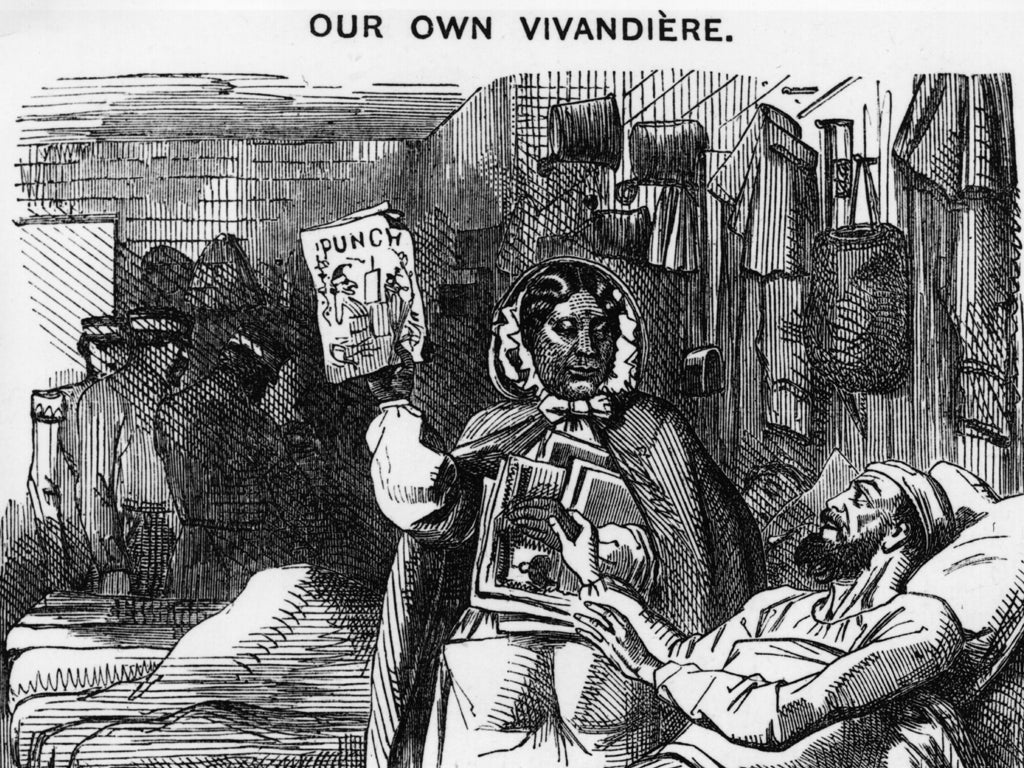Here's why Mary Seacole and other inspiring black figures should stay on the curriculum
Why can't children learn about a black woman not through the prism of slavery, colonialism or the Civil rights movement, but as a great Victorian?


Reading that Daily Mail headline on the penultimate day of the 2012 filled me with great dismay:
‘The black Florence Nightingale and the making of the PC myth: One historian explains how Mary Seacole’s story never stood up.’
That ‘historian’, William Curtis, went on to say that ‘the hype that has built up surrounding this otherwise worthy woman is a disgrace to the serious study of history.’
There have been a small, but vocal number of Mary Seacole detractors such as Curtis, and notably the former editor of Radio 4’s Today programme Rod Liddle, who almost cannot bear the fact that the exploits of Mary Seacole were being optionally taught to seven and eight year-olds as one of many great Victorians. Top of a long list of the spurious gripes, Liddle was questioning why she inspired black people, when according to him, ‘she was white. At least three quarters’.
Given that Seacole was never mandatory to the curriculum one wondered what all the fuss was about. Nevertheless, it seems that by the latter part of last year, Gove had been persuaded to dump her from the curriculum notes, along with the slave abolitionist Olaudah Equiano. The leaked report suggested that students get back to basics and learn about key figures such as Oliver Cromwell and Winston Churchill, instead of promoting 'politically correct social themes'.
My own seven year-old son had come home months earlier waxing lyrical about both Seacole and Florence Nightingale. ‘Dad’ he said, ‘this woman travelled miles, and miles on her own to care for the sick soldiers in the Crimean war. Wasn’t she brave?' His mum and I spoke about it being very significant. ‘It’s wonderful’, we reflected, ‘that our son is being taught about a black woman not through the prism of racism-slavery, colonialism or the Civil rights movement - important as they all are - but rather as a great Victorian.’
And she was great. With no title and no statue her exploits attending the sick and wounded were recognised not only by the great and good, including royalty, but also 80,000 British citizens who came out to pay respects to her in her lifetime. When was the last time 80,000 people - the size of the Olympic stadium - came out to pay tribute to a nurse? The esteemed Times war writer Sir W.H. Russell wrote of Seacole in 1857:
‘I trust England will not forget one who nursed her sick, who sought out her wounded..and who performed the last offices for some of the illustrious dead’.
On reading the proposals to scrap Seacole I and a small group of activists, including Lester Holloway, Patrick Vernon and Professor Elizabeth Anionwu from the Mary Seacole Trust, decided to start a petition on Change.org. Within a week 5,000 had signed. That was significant in itself, but the comments that came with it were more telling us much more: black people would say: ‘enough is enough. Is there nothing they won’t do to our people?’ ‘Why should our children be denied these heroes’. Others would say: ‘I’m white, and me and my family love Seacole’s story. She is a strong, great woman’.
Within two weeks nearly 30,000 had signed, including the African American Civil Rights icon Rev Jesse Jackson, and best selling author Zadie Smith.
A spokesperson for Gove’s curriculum reform suggested that ‘teachers should decide for themselves what they teach.’ We vociferously argued without direction to the rich diversity of British history our children will predominantly be taught about powerful white men and a few Queens.
The Deputy Leader Nick Clegg raised the stakes of the debate claiming that on his watch, ‘Seacole would not be removed’. Would he really make another education pledge and not keep it, we thought?
Fortunately, for Clegg that will not now be tested. Michael Gove, for all his infamy of being an ‘ideologue’ and someone who ‘just doesn’t listen no matter how reasonable’, responded personally stating:
‘I agree that it is important that our children learn about the difference that these figures have made, and it is right that we do more, not less, to make subjects relevant to the lives of our children.’
Sadly, though we are not are not home and dry.
While it’s true that Mary Seacole has gone from being in the guidance notes, to nearly being erased, to finding herself centre stage along with Olaudah Equiano, other key aspects of the curriculum seem to have disappeared. In particular the present instruction to teach African civilizations before the slave trade.
This latter part is critically important. African history lessons that start with European conquest not only denies black children of their complete true heritage, but also shockingly distorts the view of Africans to white students, too.
Unlike others we will not be ‘kicking’ Minster Gove while he’s politically down. Our challenge then as it is now has never been about taking political sides, it has only ever been about ensuring our children have the opportunity to fully tap into the rich and diverse national and international history.
Great Black Britons might be looking down saying ‘well done, but the job is only half finished.’ Like us, they'd probably want to ensure that all our students, black and white, get the rich history lessons they so deserve.

Join our commenting forum
Join thought-provoking conversations, follow other Independent readers and see their replies